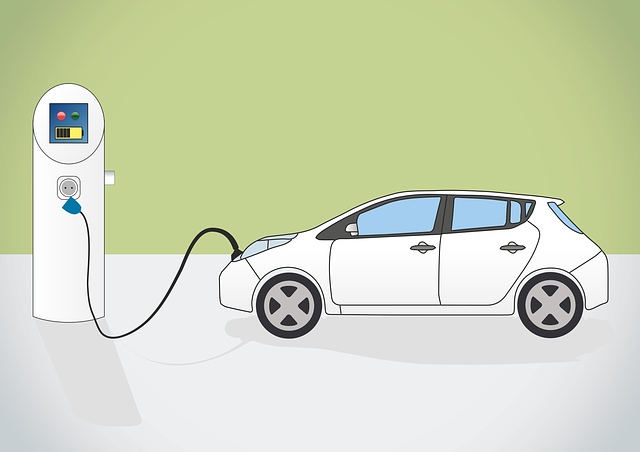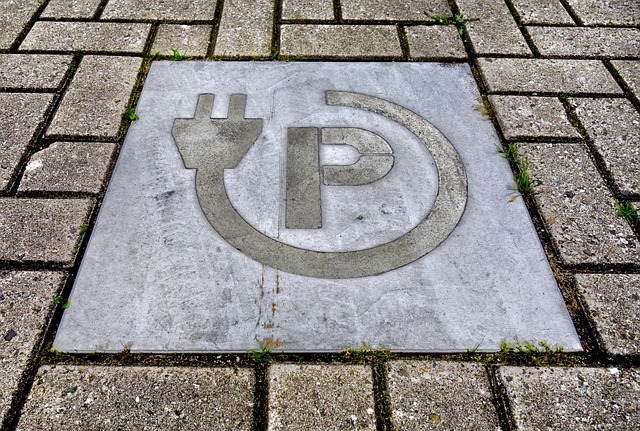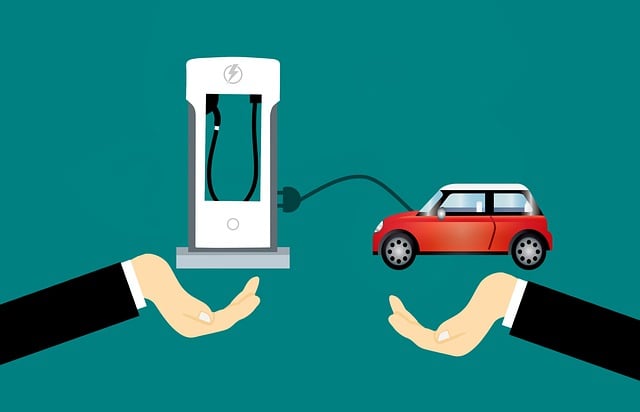Understanding EV charging costs involves key metrics like price per kilowatt-hour (kWh), differentiating between public and private stations with varying rates, and leveraging real-time pricing for optimal charging times. By selecting suitable charging stations tailored to individual needs, owners can manage costs, minimize waiting times, and enjoy a more affordable electric vehicle ownership experience. Factors influencing pricing include charger type, location, demand, and home installation costs. Staying informed about standards, comparing costs regularly, and using apps for real-time data help maximize savings. The future trends include faster charging technologies and renewable energy integration, promising improved efficiency, lower costs, and wider market appeal.
“Unraveling the complexity of EV charging costs per kilowatt-hour (kWh) is essential for electric vehicle (EV) owners seeking efficient options. This comprehensive guide, ‘Understanding EV Charging Costs,’ offers a detailed overview of factors influencing pricing, from infrastructure and location to technological advancements. We’ll explore how these elements impact your charging experience, providing insights into cost-effective strategies. Learn about the varying charges at different EV charging stations and prepare to navigate the landscape with confidence, as we also delve into future trends shaping the evolving world of EV charging.”
- Understanding EV Charging Costs: A Comprehensive Overview
- Factors Influencing Pricing per Kilowatt-Hour (kWh)
- Comparison of Charges Across Different EV Charging Stations
- Cost-Effective Strategies for EV Owners: Maximizing Savings
- The Role of Location and Infrastructure in EV Charging Prices
- Future Trends: Predicting the Evolution of EV Charging Costs
Understanding EV Charging Costs: A Comprehensive Overview

Understanding EV Charging Costs: A Comprehensive Overview
Charging an Electric Vehicle (EV) is a fundamental aspect of ownership, and the associated costs vary significantly depending on several factors. One key metric to grasp is the price per kilowatt-hour (kWh). This measure reflects the direct energy consumption during the charging process and is crucial for budgeting purposes. When considering EV charging costs, it’s essential to differentiate between public and private charging stations. Public EV chargers, often located in shopping centers or along highways, can be convenient but may charge different rates based on network providers. Conversely, home charging setups offer lower rates due to self-billing systems and the potential for off-peak electricity tariffs.
To make informed decisions, drivers should explore various EV charging stations tailored to their needs. Many modern vehicles come equipped with smart charging capabilities, allowing them to connect to compatible public chargers that offer real-time pricing and payment options. This transparency enables users to choose the best time to charge their EVs—either during off-peak hours for reduced rates or when demand is lower to minimize waiting times. By understanding these dynamics, EV owners can optimize their charging routines and manage costs effectively, ensuring a more affordable and sustainable electric vehicle ownership experience.
Factors Influencing Pricing per Kilowatt-Hour (kWh)

The pricing per kilowatt-hour (kWh) for electric vehicle (EV) charging is influenced by several key factors. One of the primary considerations is the select EV charging stations available, which can range from fast DC chargers to slower AC options. Each type has its own cost structure and efficiency levels; for instance, DC fast chargers offer quicker charging times but might be more expensive per kWh compared to AC chargers. The ev charging efficiency and power delivery of these stations plays a significant role in determining the overall cost.
Additionally, location and demand also significantly impact pricing. In urban areas with high EV adoption rates, competition among charging station operators can lead to lower prices per kWh. Conversely, remote or less populated regions may have higher costs due to lower usage and infrastructure investments. The home EV charger installation cost is another factor; while installing a home charger offers convenience and potentially lower public charging costs, the upfront expense can affect overall EV ownership costs, influencing future charging behavior and spending.
Comparison of Charges Across Different EV Charging Stations

When comparing EV charging costs per kilowatt-hour (kWh), it’s crucial to consider the variety of available stations and their pricing structures. Different select EV charging stations can significantly vary in cost, influenced by factors like location, technology, and provider. Public ev charging station pricing typically ranges from fast chargers at rest stops or shopping centers, offering quick charging at a premium price per kWh, to slower, more affordable options found at home or in residential areas.
Understanding ev charging efficiency and power delivery is key when evaluating costs. High-speed chargers, while convenient for long-distance travel, may not always be the most cost-effective for daily usage due to their rapid power delivery and subsequent higher kWh prices. Conversely, slower chargers, often cheaper per kWh, are suitable for overnight charging at home or in parking lots where lower power demands can translate into significant savings over time. Additionally, exploring ev charging equipment suppliers offering competitive pricing and installing appropriate charging solutions at home or work can further reduce overall EV charging costs.
Cost-Effective Strategies for EV Owners: Maximizing Savings

For EV owners looking to maximize savings on charging costs per kilowatt-hour (kWh), strategic choices in charging stations are key. Opting for public EV charging stations that offer competitive rates or negotiating lower tariffs with private charging networks can substantially reduce expenses. Staying informed about ev charging standards by country is also beneficial, as adherence to universal standards ensures compatibility and often leads to more affordable options.
Additionally, installing a home EV charger can provide significant savings through self-charging. While the home EV charger installation cost may seem high upfront, it pays off over time with lower charging rates compared to public stations. Regularly comparing ev charging costs comparison across different networks and locations allows drivers to identify the best deals, ensuring they get maximum value for their electricity expenditure.
The Role of Location and Infrastructure in EV Charging Prices

The cost of electric vehicle (EV) charging is significantly influenced by location and infrastructure. In urban areas with high demand, charging prices tend to be higher due to increased competition for limited charging stations. Conversely, rural or suburban regions often enjoy lower charges as there’s less congestion on charging networks. The choice of charging station type also plays a crucial role; while public AC (alternating current) chargers are widely available and relatively inexpensive, DC (direct current) fast charging stations, capable of quickly topping up batteries, come at a premium price.
Moreover, the availability of wireless EV charging technology is another factor shaping pricing dynamics. This innovative approach eliminates the need for physical connections, potentially reducing labor costs for station maintenance. However, as wireless charging remains less common than traditional methods, it often contributes to higher overall charges due to its specialized infrastructure requirements. When considering where to find public EV chargers, users can leverage apps and maps that display real-time pricing and availability data, enabling them to select the most cost-effective options based on their location and vehicle’s charging needs.
Future Trends: Predicting the Evolution of EV Charging Costs

As we move further into the electric vehicle (EV) revolution, understanding the dynamics of EV charging costs per kilowatt-hour (kWh) is crucial. Future trends suggest that the evolution of EV charging costs will be shaped by several factors. One key area is the proliferation of select EV charging stations optimized for speed and efficiency. Innovations in technology, such as advanced charging protocols and better power delivery systems, promise to reduce charging times significantly while minimizing energy wastage.
Additionally, there’s a growing emphasis on integrating renewable energy sources like solar power into solar-powered EV charging stations. This not only reduces the carbon footprint of charging infrastructure but also helps manage electricity costs for both charging networks and individual EV owners. As best EV charging networks for road trips continue to emerge and compete, we can expect pricing strategies to become more dynamic and tailored to different user needs. Enhanced competition should lead to improved ev charging efficiency and power delivery, ultimately making EV ownership more cost-effective and attractive to a broader market.
In conclusion, understanding EV charging costs per kilowatt-hour is key to making informed decisions as an electric vehicle owner. By navigating factors like location, infrastructure, and choosing the right charging stations, such as those offering competitive rates through strategic partnerships, you can maximize savings. As the landscape of EV charging evolves, staying abreast of future trends will enable owners to take advantage of more affordable options and further enhance the accessibility and affordability of electric vehicles.
